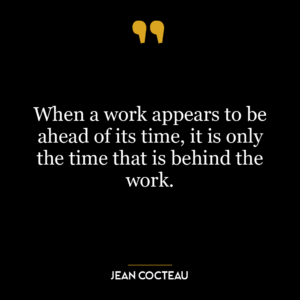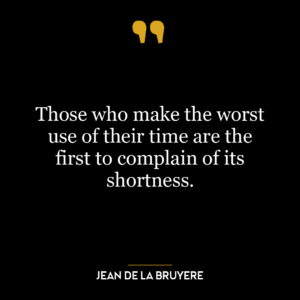This quote suggests that our perception and experience of time can have a direct impact on our biological clock, which is the internal system that controls our body’s functions and processes. When we talk about ‘metabolizing’ our experience of time, it means how we process, absorb and react to the passage of time in our lives.
For instance, if we are constantly stressed and feel like we’re always racing against the clock, our body might respond by speeding up our biological processes, potentially leading to premature aging or health issues. On the other hand, if we have a more relaxed and mindful approach to time, our biological clock might slow down, leading to improved health and longevity.
This idea is particularly relevant in today’s fast-paced world where everyone seems to be in a constant rush. We’re always trying to do more, achieve more, in less time. This can lead to chronic stress, which has been linked to numerous health problems, from heart disease to mental health issues.
In terms of personal development, this quote suggests that we should pay more attention to how we perceive and manage our time. By cultivating a more mindful and relaxed approach to time, we can potentially improve our health and wellbeing. This could involve practices such as meditation, yoga, or simply taking regular breaks to relax and unwind.
Moreover, it could also mean reevaluating our priorities and commitments. Are we packing our schedule with activities that cause us stress and anxiety? Or are we dedicating enough time to activities that bring us joy and help us relax? By being more intentional with how we spend our time, we can influence our biological clock in a positive way.










